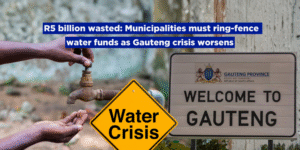The Democratic Alliance (DA) notes the announcement by President Cyril Ramaphosa of the members and mandate of the Presidential State Enterprises Council.
We’ve had a few of these in various guises over the past decade and it seems the more councils and commissions we have the more things stay the same – or worsen.
Government has over the past 12 years allocated R162 billion to financially distressed state owned enterprises (SOEs), of which Eskom accounts for more than 80% while panel after panel has overseen our passage to the edge of a fiscal cliff.
We will have to see what this council has in store for us. Given the previous track record, cutting and pasting out of the same copybook, I’m not holding my breath.
Will Council members have the latitude to say what they really think if they are diligent and rigorous in the execution of their task – liquidation, sale, privatisation? Can they manage upwards – as the newly appointed CEO of Eskom tries but fails to do? Or will they be co-opted to lend yet another veneer of credibility to a systemically hopeless task?
And then there’s the small matter of potential conflict of interest if those on the Council have access to market-sensitive information and engage down the line in investments into SOEs via their own or related companies. It has happened in the past. What’s to prevent it from happening again?
What we don’t need is yet another layer of interference into the functioning of boards and executive management. What we do need is a body that privatises, sells or liquidates – as each case demands – these malfunctioning and largely bankrupt SOEs.
What the DA will not do is join in the chorus of praise singers who chant, yet again that the President is doing the right thing. The proof of the pudding, as the saying goes, is in the eating. The problem however is that the oven baking the pudding is running out of electricity.
The DA will hold this council to rigorous account.
Click here to contribute to the DA’s legal action challenging irrational and dangerous elements of the hard lockdown in court




